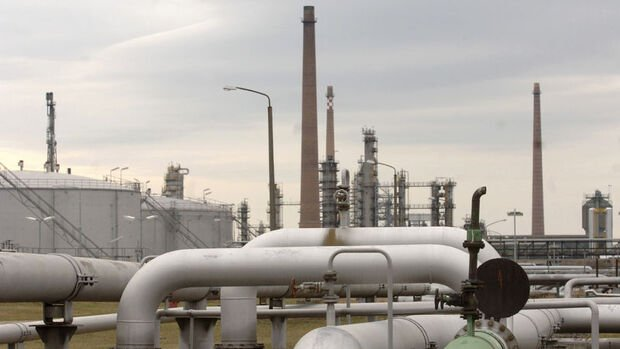EU oil imports from Russia fall by 90%
The European Union (EU) countries’ oil purchases from Russia fell by 90 percent in March of this year compared to pre-war levels. The European Statistical Office (Eurostat) published data on member countries’ imports of crude oil and petroleum products from Russia in March. Accordingly, the EU’s total imports of crude oil and petroleum products from Russia amounted to 1.4 million tons. These imports were at an average monthly level of 15.2 million tons in the 2019-2022 period. Thus, the EU’s total purchases of crude oil and petroleum products from Russia in March decreased by 90 percent. The EU imported 12.4 million tons of crude oil from Russia in January 2022, the pre-war period. The EU’s crude oil imports fell by 70 percent in December 2022, when the embargo came into effect as part of the sanctions, reaching 3.7 million tons. In March of this year, crude oil imports decreased by 91 percent compared to the pre-war month, falling to 1.17 million tons. The EU’s imports of petroleum products, which were 3.3 million tons in January 2022, also decreased by 80 percent to 0.7 million tons in February 2023 following a second embargo decision. Imports of petroleum products decreased by 92 percent compared to the pre-war month, falling to 0.3 million tons in March of this year. The EU’s oil purchases from Russia did not stop completely due to exceptions to the sanctions that allow limited imports under certain conditions. Before the war, EU countries procured approximately 25 percent of their oil and 40 percent of their natural gas from Russia. Sanctions on Russian oil The EU countries’ ban on oil transported by sea from Russia and the $60 per barrel price ceiling decisions came into effect on December 5, 2022. In this context, if Russian oil is sold to third countries at a higher price than the specified price, companies in G7 and EU countries cannot provide various services such as transportation, insurance and brokerage for this oil. In order to provide these services, Russian oil must be traded below the ceiling price. The EU's import ban on various refinery oil products such as diesel and liquid fuel oil transported by sea from Russia and the application of ceiling prices for these products began on February 5. In addition, the EU and G7 countries have also imposed restrictions on Russia's refinery oil product exports to third countries. In this context, Western countries have started to apply two different ceiling prices to Russia: high-value and low-value refinery products. A ceiling price of $100 per barrel was set for Russian diesel and gas oil, while a ceiling price of $45 per barrel was set for cheaper liquid fuel and light-colored petroleum products.


